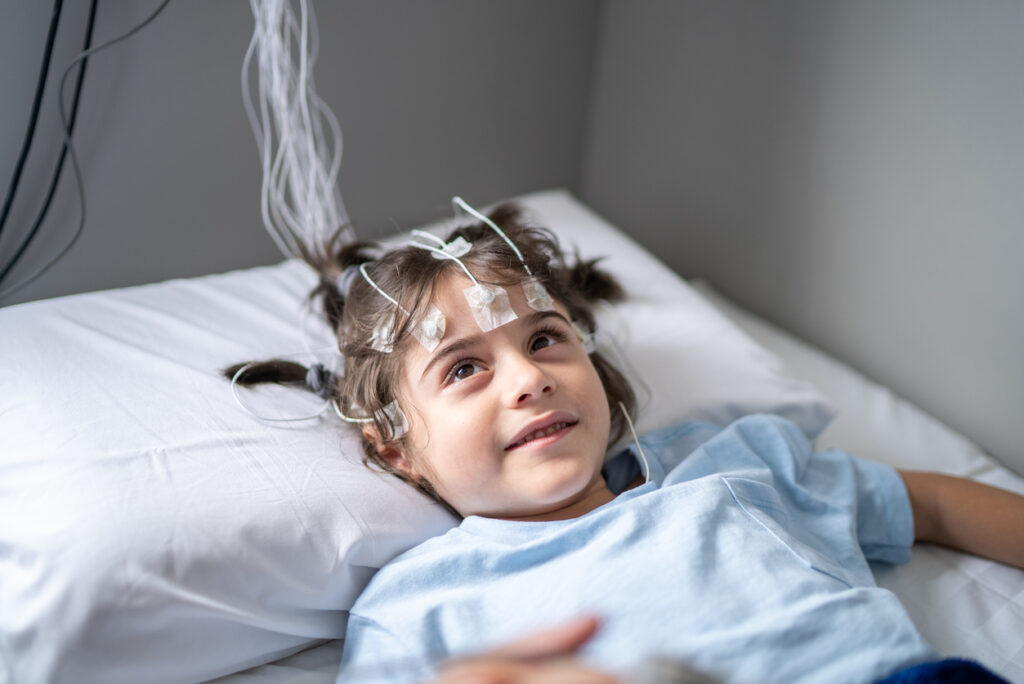Sleep apnea is a common sleep disorder that affects many individuals worldwide. If you suspect that you may be suffering from this condition, it is essential to seek medical assessment and diagnosis. Luckily, there are sleep apnea assessment centers conveniently located near you, where you can undergo comprehensive studies to determine the severity of your sleep apnea and identify suitable treatment options.
Understanding Sleep Apnea
Sleep apnea is characterized by interrupted breathing during sleep due to a partial or complete collapse of the upper airway. This interruption can lead to numerous symptoms and potential health risks if left untreated.
When searching for a sleep apnea assessment center near you, there are several factors to consider to ensure a convenient and positive experience. One of them is the close location of sleep apnea study near me.
Understanding the intricacies of sleep apnea study is crucial in managing this potentially serious condition. Sleep apnea is characterized by pauses in breathing or shallow breathing during sleep, leading to fragmented sleep patterns and decreased oxygen levels in the blood. If left untreated, sleep apnea can result in various health issues, including high blood pressure, heart disease, stroke, and daytime fatigue.
Understanding the complexities of sleep apnea involves delving into the different types of this sleep disorder. The two main types are obstructive sleep apnea, caused by the relaxation of throat muscles, and central sleep apnea, which occurs when the brain fails to send proper signals to the muscles that control breathing. Mixed sleep apnea is a combination of both obstructive and central sleep apnea, making it a more challenging condition to diagnose and treat.
What is Sleep Apnea?
Sleep apnea is a sleep disorder that causes interruptions in breathing while sleeping. These interruptions, known as apneas, can occur multiple times throughout the night and can last for a few seconds to a minute. This disruption in breathing leads to a decrease in oxygen levels in the blood and can result in fatigue, daytime sleepiness, and other complications.
Exploring the impact of sleep apnea on the body reveals the strain it puts on the cardiovascular system. The repeated drops in oxygen levels and fragmented sleep patterns associated with sleep apnea can increase the risk of developing heart conditions such as irregular heartbeats, heart attacks, and even heart failure over time. Understanding these physiological effects underscores the importance of early detection and treatment of sleep apnea.

Symptoms and Risks of Sleep Apnea
Recognizing the symptoms of sleep apnea is crucial for seeking the right treatment. Common symptoms include loud snoring, excessive daytime sleepiness, morning headaches, difficulty concentrating, and irritability. Additionally, untreated sleep apnea can lead to serious health risks, such as high blood pressure, heart disease, stroke, and diabetes.
Furthermore, the impact of sleep apnea extends beyond physical health, affecting mental well-being and daily functioning. The chronic sleep deprivation caused by untreated sleep apnea can result in mood swings, depression, and impaired cognitive function. Addressing these mental health aspects alongside the physical implications of sleep apnea is essential for comprehensive patient care.
The Importance of Sleep Apnea Studies
To accurately diagnose sleep apnea, it is essential to undergo a sleep study, also known as a polysomnography. This comprehensive assessment evaluates various physiological factors during your sleep, such as brain waves, oxygen levels, heart rate, and eye movement. The results of this study help healthcare professionals determine the severity of your sleep apnea and develop an appropriate treatment plan. Learn more about Sleep Study Penrith: Analysing Sleep Patterns in Penrith visit at https://consideringyou.com/sleep-study-penrith-analysing-sleep-patterns-in-penrith/.
Diagnosing Sleep Apnea
During a sleep study, you will spend a night in a sleep center where medical professionals will monitor your sleep patterns and collect data on your breathing, oxygen levels, and other vital signs. This non-invasive procedure allows experts to diagnose sleep apnea accurately and determine its severity.
Moreover, the data gathered from a sleep study provides valuable insights into the specific factors contributing to an individual’s sleep apnea. By analyzing these details, healthcare providers can tailor treatment plans to address each patient’s unique needs effectively.
Treatment Options and Their Effectiveness
Once diagnosed, various treatment options can help manage sleep apnea effectively. Continuous Positive Airway Pressure (CPAP) therapy is a common approach that involves wearing a mask connected to a machine that delivers a steady stream of air, keeping the airway open during sleep. Other treatment options may include oral appliances, weight management, positional therapy, and, in severe cases, surgery. Learn more about surgery visit at https://surgery.arizona.edu/.
It is important to consult with a sleep specialist or healthcare professional to determine the most suitable treatment option based on the severity of your sleep apnea and individual needs.
Locating Sleep Apnea Assessment Centers Near You
Obtaining a proper diagnosis and treatment for sleep apnea is crucial for your overall health and well-being. Sleep apnea, a condition characterized by pauses in breathing or shallow breaths during sleep, can lead to various health issues if left untreated. These may include daytime fatigue, high blood pressure, heart problems, and an increased risk of accidents due to impaired alertness.
Factors to Consider When Choosing a Sleep Study Center
When selecting a sleep study center, it is important to consider factors such as location, availability of specialized sleep experts, the range of diagnostic equipment, and the center’s reputation. Additionally, consider the center’s ability to provide detailed sleep study reports and access to follow-up consultations for ongoing treatment and support.
Moreover, a comfortable and conducive environment for conducting sleep studies is essential for accurate results. Look for centers that offer private rooms, comfortable bedding, and a quiet atmosphere to mimic your home sleeping conditions as closely as possible. Learn more about atmosphere click here.
Using Online Tools to Find Nearby Centers
Online resources can significantly aid in your search for sleep apnea assessment centers near you. Utilize search engines and review websites to find centers with positive patient feedback and convenient locations. You can also consult with your primary care physician or local sleep specialist for recommendations.
Remember that timely diagnosis and treatment of sleep apnea can greatly improve your quality of life and reduce the risk of associated health complications. Don’t hesitate to reach out to a sleep study center near you for professional evaluation and personalized care.

Preparing for Your Sleep Apnea Study
Before your sleep study, it is essential to adequately prepare to ensure accurate results and a comfortable experience. Taking the time to prepare can help you get the most out of the study and contribute to a successful evaluation of your sleep patterns.
One important aspect of preparing for your sleep apnea study is to familiarize yourself with the process. Understanding what to expect during the study can help alleviate any anxiety you may have and allow you to feel more relaxed on the day of the study.
What to Expect During a Sleep Study
During your sleep study, you will be in a private room equipped with monitoring devices. These devices will measure your brain activity, heart rate, oxygen levels, and breathing patterns throughout the night. The data collected during the study will provide valuable insights into your sleep quality and any potential sleep disorders you may have. While the setup may be different from your usual sleep environment, the sleep study professionals are trained to ensure that you are as comfortable as possible during the study.
Additionally, the monitoring devices used during the study are non-invasive and designed to allow for natural sleep movements. This means that you can rest assured that the data collected accurately reflects your typical sleep patterns.
Tips for a Successful Sleep Study
Here are some helpful tips to ensure a successful sleep study:
- Follow the instructions provided by the sleep study center regarding specific preparations, such as avoiding caffeine or certain medications.
- Try to maintain your usual sleep routine leading up to the study to ensure accurate data collection.
- Inform the sleep study professionals if you are experiencing any unusual symptoms or discomfort during the study.
- Wear comfortable clothing that allows for easy placement of monitoring devices.
- Relax and try to sleep as naturally as possible to provide accurate information about your sleep patterns.
By following these tips and preparing adequately for your sleep apnea study, you can contribute to a successful evaluation and gain valuable insights into your sleep health.
Interpreting Your Sleep Apnea Study Results
Once your sleep study is complete, you will receive a detailed report that outlines various parameters measured during the assessment. Understanding these results is essential to grasp the severity of your sleep apnea and the appropriate steps for treatment.
When analyzing your sleep study results, it’s crucial to pay attention to the number of apneas or interruptions in your breathing recorded during the study. Apneas are pauses in breathing that can last from a few seconds to minutes and can occur multiple times per hour, impacting the quality of your sleep and overall health. Additionally, your report will detail your oxygen levels throughout the night, highlighting any drops that may indicate breathing difficulties during sleep.
Understanding Your Sleep Study Report
Your sleep study report will include information such as the number of apneas or interruptions in your breathing, your oxygen levels, and any abnormal sleep patterns recorded during the study. Based on these findings, your healthcare professional will diagnose the severity of your sleep apnea and recommend suitable treatment options.
Furthermore, the analysis of your sleep patterns, including the time taken to fall asleep, periods of wakefulness during the night, and the overall structure of your sleep cycles, provides valuable insights into your sleep quality. These details help healthcare providers tailor treatment plans to address not only the apnea events but also any underlying sleep disturbances that may affect your rest.
Next Steps After Diagnosis
After your sleep apnea diagnosis, your healthcare professional will guide you through the next steps, which may include exploring treatment options, adjusting lifestyle factors that contribute to sleep apnea, and scheduling follow-up appointments to monitor your progress. It is crucial to follow the recommended treatment plan and stay in communication with your healthcare team to manage your sleep apnea effectively.
Moreover, incorporating healthy sleep habits, such as maintaining a consistent sleep schedule, creating a relaxing bedtime routine, and optimizing your sleep environment, can complement medical interventions for sleep apnea. These lifestyle modifications can improve the quality of your sleep and enhance the effectiveness of treatment strategies recommended by your healthcare provider.
Overall, locating convenient sleep apnea assessment centers near you is the first step towards gaining a comprehensive understanding of your condition. By undergoing a sleep study and receiving an accurate diagnosis, you can access appropriate treatment options and take control of your sleep health for a restful future.

